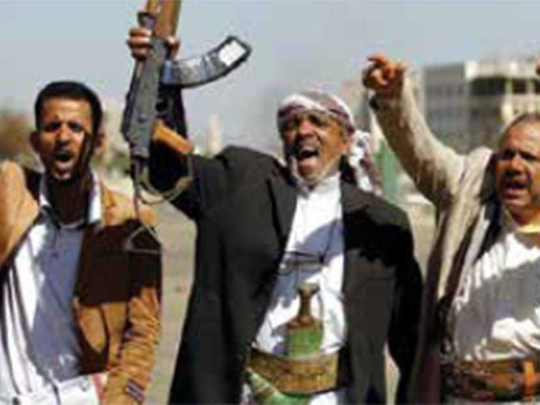
Qatar has a long history of promoting quarrelsome policies that go back to the early 1990s, over three generations of rulers.
Even the current rulers’ grandfather allowed an awkward relationship to fester with Saudi Arabia over a badly demarcated border, but his son made the relationship much worse with his sponsoring of Islamist ideas.
These were supposed to improve when the current ruler took over, but this signally did not happen as Qatar continued to pursue its idea that radical Islamism is a valid part of the Arab world.
The Emir Khalifa Bin Hamad Al Thani who had seized power in 1972 from his cousin Ahmad Bin Ali managed a broadly close relationship with Saudi Arabia, but even during his rule his son, Crown Prince and Defence Minister Shaikh Hamad Bin Khalifa, engendered a tense relationship with Saudi Arabia over the badly demarcated border.
Qatar refused to ratify the 1965 border agreement with Saudi Arabia in a dispute that culminated in a skirmish in September 1992 that left three persons dead. The two countries even supported different sides in the brief Yemeni civil war on 1994.
But things changed for the worse in 1995 when Shaikh Hamad toppled his father in a coup and took over as ruler.
Read more:
Questions arise on Qatar refusal to toe GCC line
Qatar dispute should be a family affair
As Christian Coates-Ulrichsen of Rice University writing in Atlantic magazine this month said: “Much of the anger that has defined the relationship between Qatar and its neighbours since 2011 originated in the policies of Shaikh Hamad after he seized power from his father in a bloodless palace coup in June 1995.
"Together with his foreign minister, Shaikh Hamad Bin Jassim Al Thani, Emir Hamad was instrumental to Qatar’s rise to global prominence in the 1990s and 2000s as he accelerated the development of its liquefied natural-gas infrastructure and forged long-term energy agreements with industrialised and emerging economies worldwide.”
This development was also accompanied by the launch of Al Jazeera TV which famously established itself as a relatively free TV channel in a region that had very few like it.
But within a few years its occasional scoops from Al Qaida and the Taliban had become a regular flow of news and commentary, and the agenda of Al Jazeera changed to sponsor the radical Islamism that was seeking to gain traction in the region.
More and more radical
The refusal of the Qatari government to use its influence on the shareholders as the channel became more and more radical, and the frequent attacks on GCC neighbours, was a significant sticking point.
But sponsoring the high profile TV station was only part of the story. Qatar also plunged into the chaos of the post-Arab Spring with active support for radical groups.
“Qatar has independent wealth from the gasfield that it shares with Iran, and this has enabled it to develop foreign policies that diverged from its neighbours. It financed the Muslim Brotherhood in Egypt, Hamas in the Gaza Strip and armed factions opposed by the Emiratis and Saudis in Libya and Syria.
When Shaikh Tamim became emir in 2013 after his father’s abdication, he was seen as an attempt to demonstrate that Qatar was adjusting from its “aberrant” ways, said Peter Salisbury, senior research fellow at Chatham House’s Middle East & North Africa Programme.
As Coates-Ulrichsen said: “At the time of the handover of power from Emir Hamad to his 33-year-old son, Emir Tamim, in June 2013, hopes were high in Riyadh and Abu Dhabi that the young new emir would recalibrate Qatar’s approach to regional affairs.
"However, in November 2013, five months into Tamim’s rule, Saudi and Emirati leaders reacted to reports in US media outlets that members of the Muslim Brotherhood were regrouping in Doha following the toppling of Egypt’s President Mohammad Mursi and the institution of military rule”.
That crisis was eventually papered over in 2014 with the Riyadh Agreement, but that concord has dramatically unravelled in the current crisis following Qatar’s step back from the united GCC position that was most recently expressed in the summit with US President Donald Trump.
“The security and social challenges of the current period of transformation, and the perceived encouragement of a new US administration, have led Saudi Arabia and the UAE, and their allies, to press their advantage and seek their goal: a unified Gulf under Saudi aegis,” said Kristin Smith Diwan of the Arab Gulf States Institute in Washington in an online commentary.
“From the perspective of the Saudi and Emirati leadership, the disparate outlooks and competing agendas in the GCC have weakened its strategic cohesion, limited its effectiveness via rivals, and opened national borders to instability, especially from Islamist and activist groups.
"Qatar’s supporters see the campaign as an infringement on its sovereignty and a check on the political space it has opened. The outcome of the showdown will shape the Gulf’s future and its media as well.”











